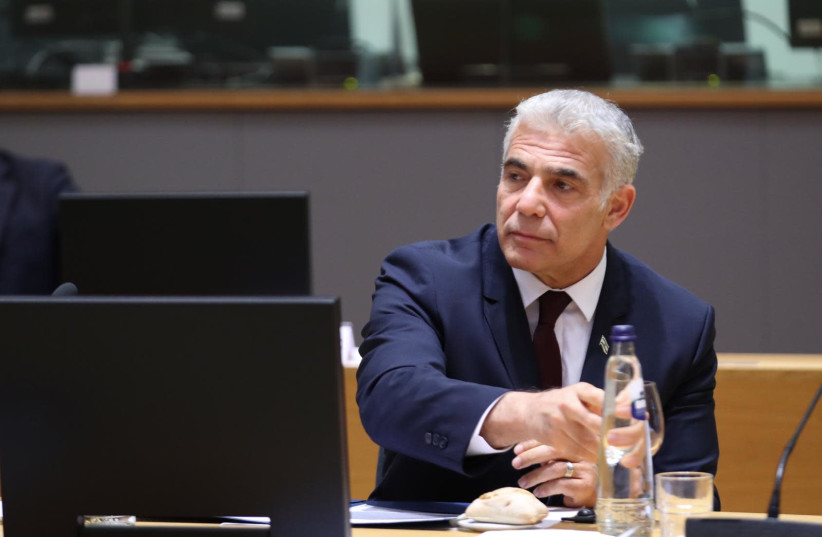US plans to reopen its Jerusalem Consulate General – which directly worked with the Palestinian Authority – would jeopardize Israel’s government, Foreign Minister Yair Lapid warned on Wednesday, adding that this viewpoint has been conveyed to Washington.
“We have an interesting yet delicate structure of our government, and we think this might destabilize this government, and I don’t think the American administration wants this to happen,” Lapid said.
The former Trump administration closed the Consulate General in 2019, folding its services into that of the US Embassy, which the US had relocated to Israel’s capital from Tel Aviv the previous year.
The United States first opened a consulate in Jerusalem’s Old City in 1844, moving it to a nearby location outside the city walls on Agron Street in 1912.
After the 1993 Oslo I Accord, the consulate acted as a de facto embassy to the PA, which viewed its closure as one more symbolic step the Trump administration had taken to sever the ties between them and to disconnect it from Jerusalem.
“I know the history,” Lapid said. “Once it was closed, reopening it will send the wrong message, not only to the region, not only to the Palestinians, but also to other countries. We don’t want this to happen,” he said.
Israel holds that Jerusalem is its united capital, but has received scant recognition of that sovereignty either over the western part of the city, which has been within its borders since 1948, or over the eastern part of the city, which it annexed in the aftermath of the 1967 Six Day War.

Since then-president Donald Trump recognized Jerusalem as Israel’s capital in 2017, Israel has campaigned for other countries to follow suit. President Joe Biden, who in the past has acknowledged that Jerusalem is Israel’s capital, has not taken any steps to rescind any of Trump’s decisions on the status of the city.
Upon taking office in January, Biden pledged to reopen the consulate, but has not yet set a date for the restoration of that mission.
Israel fears that such a move would be tantamount to recognizing PA rights to Jerusalem. The PA and much of the international community hold that east Jerusalem is the future capital of a Palestinian state.
Lapid spoke to reporters of the negative role that reopening the US Consulate General in west Jerusalem would have in the debate over Israeli sovereignty in its capital.
“Jerusalem is the sovereign capital of Israel and of Israel alone, and therefore we don’t think it’s a good idea,” Lapid said, explaining that Israel’s views on this differ from that of Biden.
Prime Minister Naftali Bennett discussed Israeli opposition to the move when he met with Biden last week in Washington.
“We know the [Biden] administration has a different way of looking at this,” Lapid said. “But since this is happening in Israel, we are sure that they are listening to us very carefully when we explain to them our point of view on this.”
On Tuesday, PA Prime Minister Mohammed Shtayyeh spoke in English at a Zoom event organized by the Nizami Ganjavi International Center and referenced the reopening of the consulate.
This is very important because “we look at it as the future American embassy to the state of Palestine,” Shtayyeh said.
